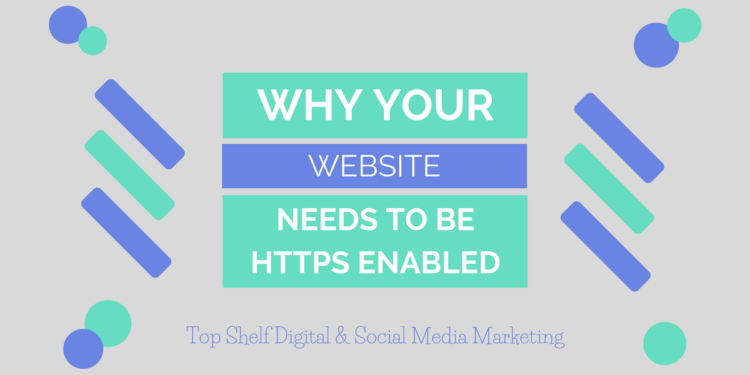
You’ve probably heard the growing buzz around HTTPS and SSL. What you may be less familiar with is how important it is to your website. In October 2017, Google will display security warnings in the address bar of sites that collect user information without HTTPS. If you have any fill in content at all – newsletter sign up, contact form, etc. – this applies to your website.
HTTPS isn’t Just for eCommerce Anymore

Google’s big push toward websites with Secure Sockets Layer (SSL), the cryptographic protocols that provide communications security over a computer network, started about a year ago. By January 2017, websites that collected credit card information or had client logins and did not have HTTPS enabled started seeing off-putting warnings to their site visitors.
Although the warnings only show up in the Chrome browser, that accounts for roughly 60% of all web traffic. What does that mean? By not installing an SSL on your website, which enables HTTPS, you could be reducing your potential website visitors by more than half of everyone using the web.
How To Enable HTTPS
Enabling HTTPS is as easy as installing an SSL certificate on your website. There are lots of different ways to accomplish this, and a whole host of SSL providers. I you want to give it a shot on your own, this is a basic, step-by-step guide to enabling HTTPS and this is a comparison of HTTPS service providers.
It’s worth noting that going with reputable SSL providers is just as important as using a reputable website hosting company. Recently the Top Shelf website’s SSL certificate malfunctioned and our site experienced the issue explained in this post. Our hosting and SSL provider, BlueHost remedied the situation quickly and was incredibly helpful during a stressful time for any business.
Final Thoughts
If you haven’t already installed an SSL certificate on your website to enable HTTPS, the time has come to do so. There are lots of options when it comes to SSL providers, and they are relatively easy to install. If you need help, you can contact your hosting provider or an independent digital marketing agency (like us!) to assist you.
To see if your needs align with our skills; tell us a little about your brand.
